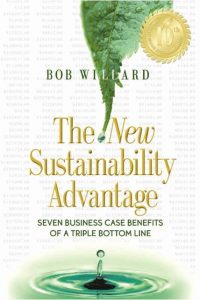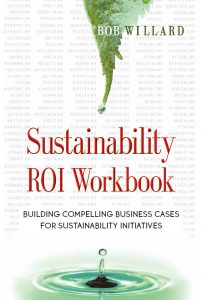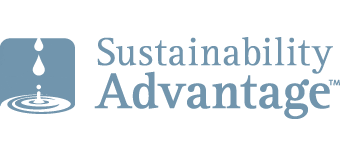The Business Case for Sustainability, Redux … Seven times
Question: “What’s the business case for sustainability?”
Answer: “Compelling! Doing the right thing for the environment and society enables a company to capture new opportunities and avoid new risks.”
Next Question: “Okay, but what’s the business case for sustainability?”
Answer: “…?!?! …”
I was reminded of this frustrating dialogue when I read Andrew Winston’s recent blog, “Explaining the Business Case for Sustainability Again … and Again … and Again.” Andrew is a guru on the business case for sustainability. His book, Green to Gold, is a classic. In his blog, he recalls five different Groundhog Day-like discussions he’s had on the business case for sustainability. I smiled when I read them. It was a trip down memory lane.
I’ve used many variations of Andrew’s answers over the last 18 years. I did a PhD to find better ones and published my findings in The Next Sustainability Wave. I wrote blogs on whether people are asking about potential ROI, share price performance or greater profits when they ask about a “business case.” I’ve run dozens of objection handling clinics to help people more effectively engage in conversations with skeptics. I’ve done over a thousand presentations on the business case for sustainability. And yet the question persists.
Maybe people keep asking the same question because we aren’t quantifying / monetizing the business case cited in our answers, or because we are not making our responses relevant to the questioner’s company. With that in mind, let me propose two more iterations to the five Q&A scenarios described in Andrew’s blog.
Q: “I get that there may be a business case for other companies doing more on sustainability, but is there a business case for us?”
A: The New Sustainability Advantage explains that if a typical company were to simply implement best-practice sustainability approaches  already being used by other real companies, it could improve its profit by at least 51% to 81% within three to five years, while avoiding a potential 16% to 36% erosion of profits if it did nothing. To find out whether those profit-related benefits are possible for you, just plug your financials into the company data profile in the book’s companion free, open-source worksheet and it will do the benefit projections for you as you tailor the starter set of research-based assumptions to fit your situation. If the pot of gold at the end of the sustainability rainbow is big enough, then there is a business case for your company going all-in on smart environmentally- and socially-beneficial actions. If it isn’t big enough, then there isn’t a business case for your company implementing sustainability best practices. Any further questions?
already being used by other real companies, it could improve its profit by at least 51% to 81% within three to five years, while avoiding a potential 16% to 36% erosion of profits if it did nothing. To find out whether those profit-related benefits are possible for you, just plug your financials into the company data profile in the book’s companion free, open-source worksheet and it will do the benefit projections for you as you tailor the starter set of research-based assumptions to fit your situation. If the pot of gold at the end of the sustainability rainbow is big enough, then there is a business case for your company going all-in on smart environmentally- and socially-beneficial actions. If it isn’t big enough, then there isn’t a business case for your company implementing sustainability best practices. Any further questions?
Q: “Yes. Even if our company-level business case is as compelling as The New Sustainability Advantage claims it could be, is there a project-level business case that justifies each initiative on our journey to the pot of gold that we just realized is ours for the taking, one project at a time?”
A: Yes. Happily there’s a free, open-source, downloadable Sustainability ROI Workbook to help assess the project-level business case for sustainability initiatives. It frames the ROI / cost-benefit analysis of the action using a typical capital expenditure (CAPEX) request form  used by CFOs when deciding which projects deserve investment of the company’s precious resources. It calculates the project’s payback period, internal rate of return (IRR) and net present value (NPV) based on your input about potential savings and revenue growth that would result from the proposed initiative. It even includes an enhanced CAPEX request form, as recommended by the CFO Leadership Network, to enable CFOs to weight their decision-making criteria to acknowledge that the sustainability attributes of the project matter to the company. If the project-level business case is good enough, the initiative will be approved. If it’s not, it won’t be. Any other questions?
used by CFOs when deciding which projects deserve investment of the company’s precious resources. It calculates the project’s payback period, internal rate of return (IRR) and net present value (NPV) based on your input about potential savings and revenue growth that would result from the proposed initiative. It even includes an enhanced CAPEX request form, as recommended by the CFO Leadership Network, to enable CFOs to weight their decision-making criteria to acknowledge that the sustainability attributes of the project matter to the company. If the project-level business case is good enough, the initiative will be approved. If it’s not, it won’t be. Any other questions?
Q: “No. Thanks for helping me answer my own questions.”
A: You’re welcome.
Perhaps if we help monetize and personalize the company-level and project-level business cases for sustainability, questioners will get answers to the questions that they are really asking: “Is there a business case for my company being more proactive on sustainability?” and “Is there a necessary and sufficient business case for my sustainability project that will win CFO approval?” Their answers will be more credible than ours because they created them.
Or, maybe we should try an edgier tactic. Maybe it’s time we stopped being on the defensive and we started to ask our own tough questions. When I bought my first hybrid car, people would ask whether I could really save enough gas to offset the extra expense of the car. At first, I scrambled to do a retroactive cost-benefit analysis to justify my purchase. Looking back, I realize that I got sucked into a defensive business case exercise that was irrelevant. Maybe I should have answered, “I’ll show you my business case for buying a hybrid if you show me your business case for buying an SUV.” I bought the hybrid because I wanted it, the same reason most people use to justify purchasing their vehicle of choice. I used a values-based rationale. I expect they did, too.
So, maybe the next time we’re asked whether there is a business case for sustainability we should try a similar retort: “I’ll show you the business case for your company helping to create a more sustainable world if you’ll show me the business case for your company helping to destroy it.”
Any other questions …?
Please feel free to add your comments and questions using the “Leave a reply” comment box under the “Share this entry” social media symbols, below. For email subscribers, please click here to visit my site and provide feedback.




